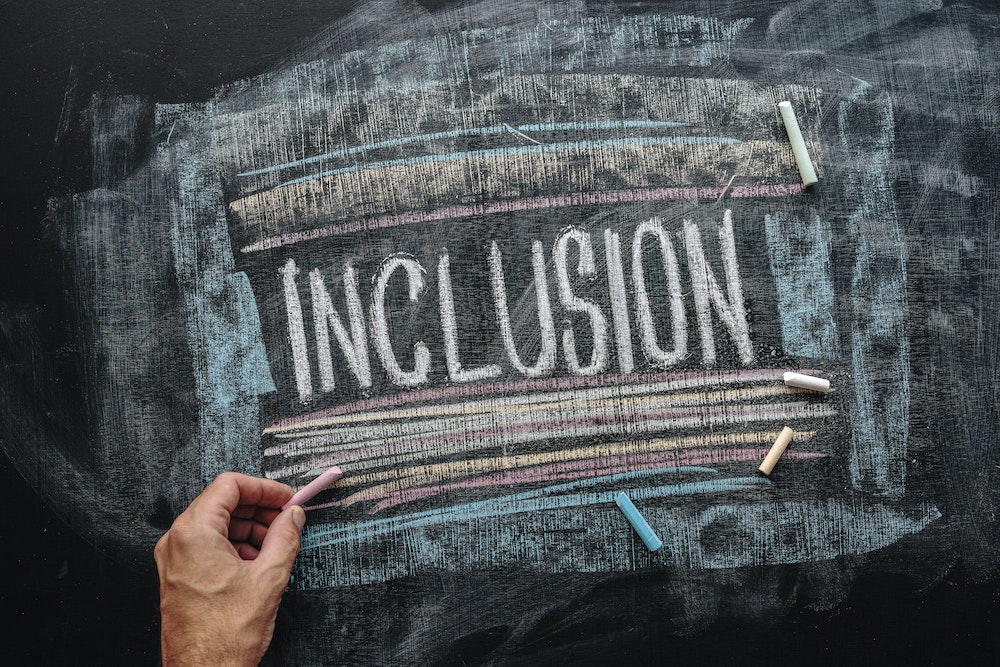How Can Sports Organizations Foster Diversity and Inclusion?

The world of sports, like any other sector, is not immune to the pressing issues surrounding diversity and inclusion (DEI). The question we should ask ourselves is: How can sports organizations foster diversity and inclusion? It’s about time we address this issue head-on, giving it the attention it deserves. So, let’s dive in and explore the ways sports organizations can foster a more diverse and inclusive environment.
Understanding the Importance of DEI in the Sports Industry
Before we delve into the practical ways sports organizations can promote DEI, it’s essential to grasp the significance of this topic within the sports industry.
Topic to read : What’s the Role of AI in Enhancing Personal Fitness Regimens?
Diversity and inclusion are not mere buzzwords; they are concepts that reflect the society we live in. Inclusion means welcoming individuals from all backgrounds, regardless of their race, religion, gender, or social status. On the other hand, diversity refers to a rich mix of different people, which creates a vibrant and dynamic environment.
The sports industry, with its vast reach and influence, has a crucial role to play in promoting these principles. Diversity and inclusion can help sports teams and organizations to tap into a broad range of talents, perspectives, and experiences. These factors can significantly enhance performance and competitiveness on the field.
Topic to read : How Are Advanced Fabrics Revolutionizing Athletic Wear?
Moreover, establishing an inclusive and diverse environment within sports organizations can create positive change beyond the sports arena. It can inspire individuals and communities, fostering a sense of unity, respect, and understanding.
Steps to Foster DEI Within Sports Organizations
For sports organizations committed to fostering diversity and inclusion, there are several steps they can take to create an environment conducive to these principles.
First, it starts with leadership. Leaders within these organizations must set the tone for an inclusive culture and lead by example. They should prioritize DEI in their policies, rhetoric, and actions. Having a diverse leadership team itself can send a powerful statement about the organization’s commitment to DEI.
Inclusivity should also be integrated into the recruitment process. This requires organizations to be proactive in seeking out and hiring athletes, coaches, and staff from diverse backgrounds. Affirmative action can often be a useful tool in achieving this goal.
Organizations ought to provide equal opportunities for all athletes, regardless of their background. This can be achieved by ensuring equal access to training facilities, coaching, and competitive opportunities.
Promoting an Inclusive Environment
An organization’s commitment to DEI should be reflected not only in its policies but also in its environment. The environment in which athletes operate should be a safe space where they feel valued, respected, and free to be themselves.
Promoting an inclusive environment can be achieved in various ways. Regular training and education on diversity and inclusion can help all team members understand the importance of these principles and how they can contribute to fostering them.
Moreover, encouraging open communication and dialogue about DEI can help address any issues, misconceptions, or biases that may exist within the team. It can also provide an opportunity for athletes to share their experiences and perspectives, fostering empathy and understanding among team members.
The Role of Allies in Promoting DEI
Allies can play a significant role in promoting DEI in sports. An ally is someone who supports and advocates for a group other than their own. In the context of sports, allies can be teammates, coaches, or even fans who stand up for the rights and dignity of athletes from minority backgrounds.
Allies can use their privilege and influence to challenge discrimination and bias and promote a more inclusive culture within their teams and organizations. They can speak up against discrimination, support their teammates, and help educate others about the importance of DEI.
By becoming allies, individuals can contribute to a more inclusive sports industry, where everyone has the chance to thrive.
Harnessing the Power of Sports for Social Change
Finally, sports organizations can use their influence to promote diversity and inclusion beyond the sports field. Many athletes are role models for young people, and sports events often attract large audiences. This makes sports a powerful platform for promoting social change.
Sports organizations can leverage this influence to raise awareness about DEI issues, advocate for equality and justice, and inspire their fans to embrace these principles in their own lives. This can be achieved through various means, from public statements and campaigns to partnerships with DEI-focused organizations.
By championing DEI, sports organizations can contribute to a more diverse and inclusive society, where everyone has the opportunity to participate, achieve, and succeed, regardless of their backgrounds.
Encouraging Diversity and Inclusion through Hiring Practices
Hiring practices play a significant role in promoting diversity and inclusion. Sports organizations can make a conscious effort to hire professionals from diverse backgrounds – be it athletes, coaches, or staff. This process should be non-discriminatory and aimed at enriching the organization with different experiences and perspectives.
To start with, it’s crucial that sports organizations develop a comprehensive understanding of what diversity means. It’s not limited to race or ethnicity but expands to other dimensions such as age, gender, physical abilities, religious beliefs, and socio-economic status.
Secondly, sports organizations should be transparent about their commitment to diversity and inclusion. This can be communicated through their mission statement, job advertisements, and recruitment process. It’s about sending a clear message that the organization values diversity and is actively seeking individuals from all backgrounds.
Moreover, it’s fundamental that sports organizations reassess their hiring practices. They should ensure that the recruitment process is unbiased and inclusive. This may involve using blind applications, where personal details that may unconsciously influence hiring decisions are removed, or ensuring that shortlisting panels are diverse.
Ongoing training on diversity and inclusion for those involved in the hiring process is essential. Such training can help individuals recognize and overcome their unconscious biases, ensuring a fair and equitable recruitment process.
Building a Sense of Belonging through Inclusion in Sports Leagues
Creating a sense of belonging is key to fostering diversity and inclusion in sports leagues. When individuals feel that they belong, they are likely to be more engaged, committed, and productive.
To create a sense of belonging, sports organizations should strive to create an inclusive environment where everyone feels valued and respected. This involves cultivating a culture that celebrates diversity and promotes equity and inclusion. Everyone in the organization should feel that they can bring their whole selves to the team, without fear of discrimination or exclusion.
Inclusion in sports goes beyond simply having a diverse team. It’s about ensuring that everyone in the team feels included and valued. This can be achieved by fostering open communication, promoting collaboration, and providing opportunities for everyone to contribute and excel.
Moreover, sports leagues can enhance the sense of belonging by acknowledging and celebrating the unique contributions of each team member. They can also provide opportunities for athletes from diverse backgrounds to take on leadership roles, thereby empowering them and giving them a voice.
In conclusion, fostering diversity and inclusion in sports organizations is not just the right thing to do – it’s a strategic imperative. It can enhance performance, foster a sense of belonging, and make a positive impact beyond the sports field. By embracing diversity and inclusion, sports organizations can drive success on and off the field, contribute to social change, and build a more inclusive and equitable society. Therefore, it’s upon every stakeholder in the sports industry to champion diversity and inclusion in their respective capacities and spearhead a more inclusive sporting world.
